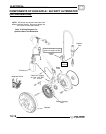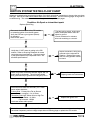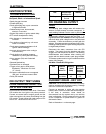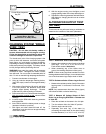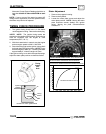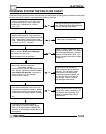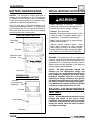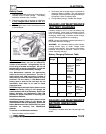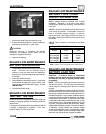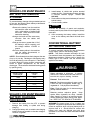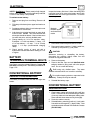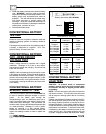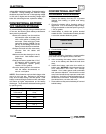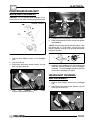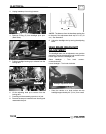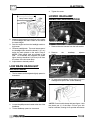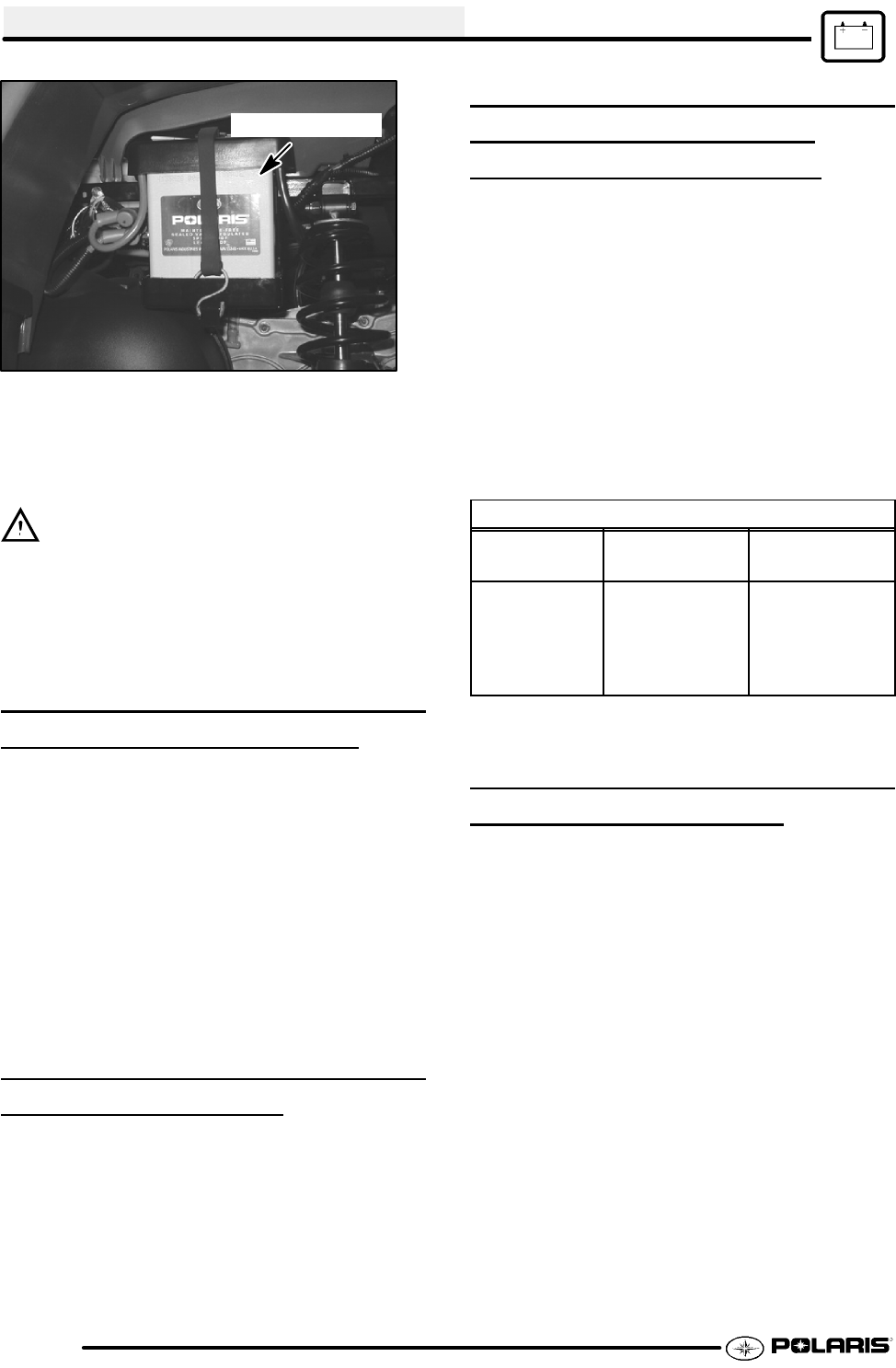
ELECTRICAL
10.26
Battery Location
1. Disconnect holder strap and remove cover.
2. Disconnect battery negative (-) (black) cable first,
followed by the positive (+) (red) cable.
CAUTION
Whenever removing or reinstalling the battery,
disconnect the negative (black) cable first and
reinstall the negative cable last!
3. Remove the battery.
SEALED LOW MAINTENANCE
BATTERY INSTALLA
TION
1. Cleanbattery cables and terminals with a stiff wire
brush. Corrosion can be removed using a
solution of one cup water and one tablespoon
baking soda. Rinse well with clean water and dry
thoroughly.
2. Route the cables correctly.
3. Reinstall battery, attaching positive (+) (red) cable
first and then the negative (-) (black) cable. Coat
terminals and bolt threads with Nyogelt Grease
(PN 2871329).
4. Reinstall the holder strap.
SEALED LOW MAINTENANCE
BATTERY
TESTING
Whenever a service complaint is related to either the
starting or charging systems, the battery should be
checked first.
Following are three tests whichcan easily be made on
a battery to determine its condition: OCV Test,
Specific Gravity Test and Load Test.
SEALED LOW MAINTENANCE
BATTERY -- OCV -
OPEN
CIRCUIT VOLTAGE
TEST
Battery voltage should be checked with a digital
multitester. Readings of 12.8 volts or less require
further battery testing and charging. See charts and
Load Test.
*NOTE: Lead-acid batteries should be kept at or near
a full charge as possible. If the battery is stored or
used in a partially charged condition, or with low
electrolyte levels, hard crystal sulfation will form on
the plates, reducing the efficiency and service life of
the battery.
*NOTE: Use a voltmeter or multimeter to test batter
voltage.
OPEN CIRCUIT VOLTAGE
State of
charge
Maintenance
Free
YuMicront
Type
100%
75% Charged
50% Charged
25% Charged
0% Charged
13.0V
12.80V
12.50V
12.20V
less than 12.0V
12.70V
12.50V
12.20V
12.0V
less than 11.9V
*At80_F
NOTE: Subtract .01 from the specific gravity reading at 40_ F.
SEALED LOW MAINTENANCE
BATTERY LOAD
TEST
CAUTION: To prevent shock or component
damage, remove spark plug high tension leads
and connect securely to engine ground before
proceeding.
NOTE: This test can only be performed on machines
with electric starters. This test cannot be performed
with an engine or starting system that is not working
properly.
A battery may indicate a full charge condition in the OCV
test and the specific gravity test, but still may not have
the storage capacity necessary to properly function in
the electrical system. For this reason, a battery capacity
or load test should be conducted whenever poor battery
performance is encountered. To perform this test, hook
a multitester to the battery in the same manner as was
done in the OCV test. The reading should be 12.6 volts
or greater. Engage the starter and observe the battery
voltage while cranking the engine. Continue the test for
15 seconds. During cranking the observed voltage
should not drop below 9.5 volts. If the beginning voltage
is 12.6 volts or higher and the cranking voltage drops
below 9.5 volts during the test, replace the battery.



